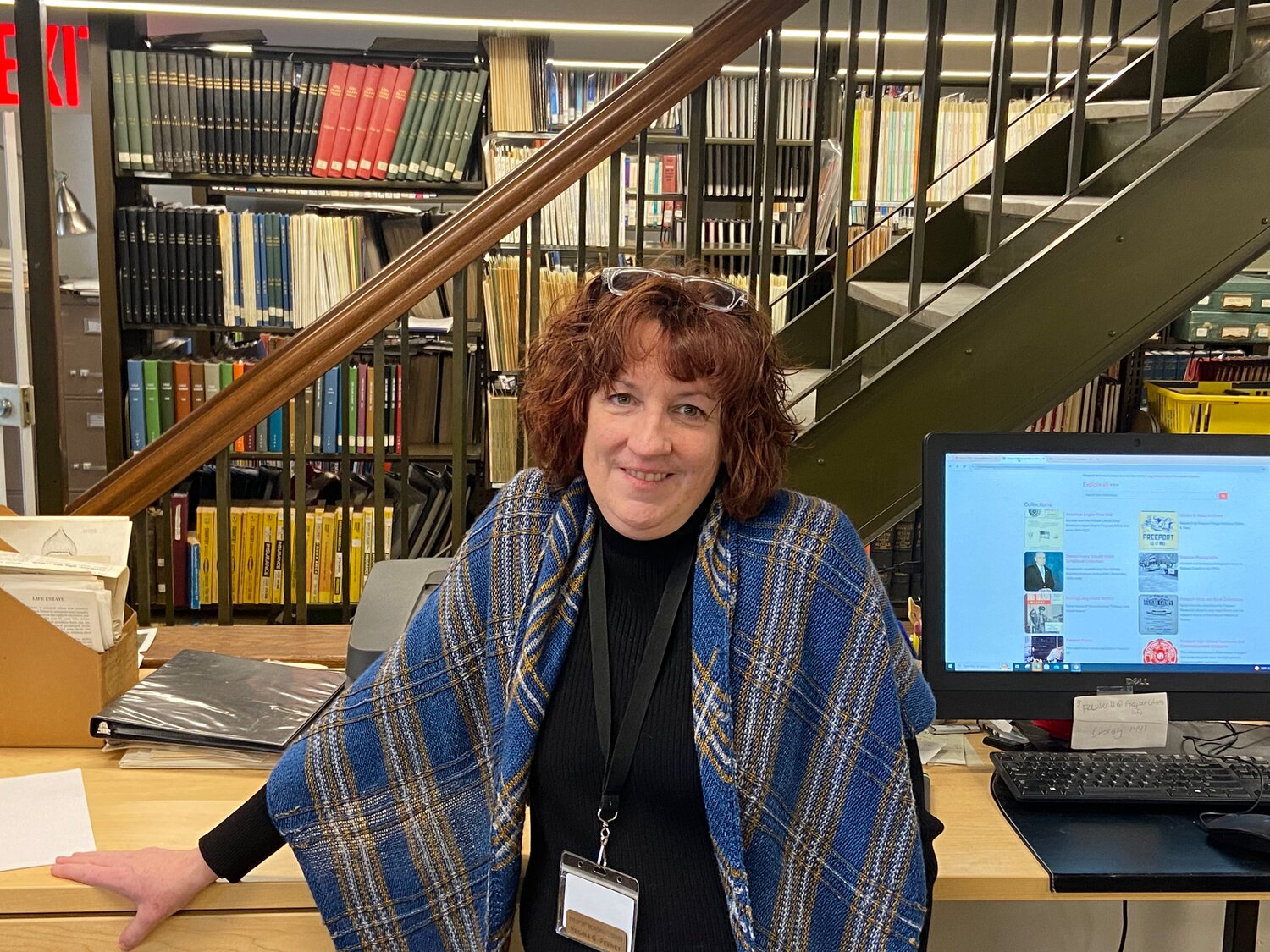Village archivist on why it is that she loves Freeport
Regina Feeney loves Freeport — so much so that she’s dedicated a substantial part of her career to archiving and digitizing the village’s history, and assembling virtually an entire encyclopedia of her hometown.
State law requires every municipality to have a historian on staff, and Feeney, a librarian and archivist at the Freeport
Memorial Library, has also served as village historian since the death of her predecessor, Cynthia Krieg. She grew up in Freeport, and has worked at the library for over 20 years, but it’s not as if the village is all she’s ever known. Quite the contrary.
“I’m not like George Bailey in ‘It’s a Wonderful Life,’” Feeney said. “I got to leave Freeport … I went to college, I lived in Europe, I lived and worked in New York City.” And yet Feeney decided to focus a large part of her career on meticulously documenting the history of one of the largest villages in New York.
Asked what drew her to such an extensive project, Feeney said, “All my life as a Freeporter, when I would tell people I was from this town, I would get these weird looks, like, ‘You’re from there?’
“And people would say these really horrible things about this town,” she added. “And I was like, this is odd, because it’s not the Freeport I know. And I realized that we, as Freeporters, we allow people from other places to define us; we allow other communities to tell us who we are. We need to define ourselves. We need to set the tone and message.
“My superpower is history,” Feeney said. “And I love talking about history, because the more I dig deep into Freeport history, (the more I realize) how amazing this town is. It has got such cool and interesting people, and such interesting things happened here.”
Feeney, 54, has been working at the library since she was 16. Even when she left town to work as a corporate librarian, or “information specialist,” in New York City, she still often worked part-time as a reference librarian in Freeport, staying with her parents.
After the downsizing of the business and economic think tank she worked for after the Sept. 11 attacks, Feeney moved back to Freeport. She bought a co-op in town and has lived here ever since.
She has done groundbreaking work in archiving village history, specifically digitizing newspapers from the past 100 years. The project was part of a larger effort initiated by the Long Island Library Resources Council circa 2002. Feeney started small, with just a postcard collection, borrowed from the Freeport Historical Society, of which she is now a trustee. She began posting the postcards, which numbered in the hundreds, online.
“I’m very competitive,” Feeney said. “And there was a small group of us on the Island doing this project. And I was like, ‘We’re going to make this, like the biggest project’ … and within six months, we blew every other library (out of) the water.
“When you think of Long Island history, you think of the North Shore,” she said. “Nobody thinks of the South Shore. And certainly no one thinks of Freeport. And suddenly we flip that script. We become the leaders of this, and in 2005 the (Library Resources Council) came back to us, because they wanted us to be their beta testers for newspaper digitization.”
Since then, Feeney has overseen the digitization of over 100 years of Freeport newspapers, and made them searchable, providing easy access to village history. Along the way, with the help of the historical society, she has created a comprehensive Freeport History Encyclopedia, which lists anything and everything Freeport-related in alphabetical order, and which Feeney plans to continue to expand. It is digitally linked to the newspaper archive, providing an extraordinarily comprehensive resource for those who want to learn more about Freeport.
Asked what motivates Feeney, Denise Rushton, a fellow historical society trustee, said, “Regina is an excellent researcher. She’s very knowledgeable about Freeport, and is always doing programs about different aspects of Freeport’s history.”
Asked why that work is important, Rushton said, “I think history as a whole is important. Just to learn where we came from, to learn from the past.”
Clearly, Feeney agrees.






